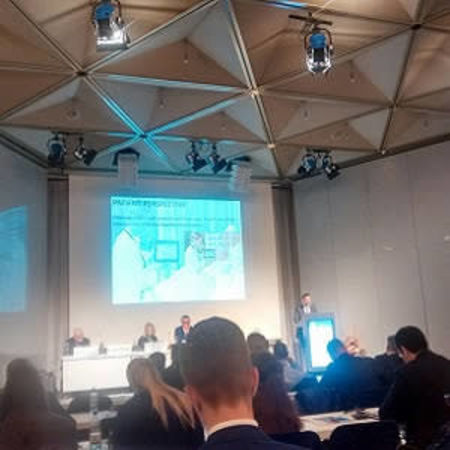This week the international healthcare trade fair, MEDICA, was held in Düsseldorf, Germany. eHealth was a key topic with an important session taking place under the umbrella of the 4th European Hospital Conference Entitled "Chances and Challenges of E-Health", the focus was on how eHealth is being put into place across the bloc at a Commission and national levels.
Andrzej Rys, Director General of the Directorate SANTE of the European Commission, presented the European Commission’s “eHealth Action Plan 2012 – 2020”. High-ranking speakers from the European Hospital and Healthcare Federation (HOPE), the European Association of Hospital Managers (EAHM) and the Association of European Hospital Physicians (AEMH) gave insightful and practical comments. Beyond this, national eHealth concepts from Denmark, Germany, Sweden and Switzerland were presented, followed by examples of implementation of individual eHealth-Solutions in Hospitals. Nobody claimed to have all of the answers for this complex topic but they did share practical on-the-ground advice on eHealth adoption at multiple levels. HealthManagement.org shares some of the takeaway comments from the event.
Eva Weinreich-Jensen, President - European
Hospital and Healthcare Federation (HOPE) and event Chair
“We don’t need any more legislation - but sharing and knowledge.”
“We can’t have a system of ‘one size fits all’. It is different in every country.”
“When it comes to eHealth data security implementation, you can’t work on the assumption that something is going to go wrong. You have to deal with all as it comes up.”
“Protection of patient and data is the key point – it can't be stressed enough. It is how we are judged by patients and people and takes a long time to build up trust. The few cases where there is misuse is really very damaging.”
“We don’t want to make a system that solves everything from the start. We have to start small – but with small projects that get you somewhere.”
Andrzej Rys, Director, Directorate General - SANTE, European Commission
“Some EU states are getting financial aid for eHealth implementation but we also need the will of political and public bodies for the puzzle to come together.”
“We strongly believe for managers and hospitals there are a number of benefits and opportunities because owing to eHealth knowledge, research and innovation. I don’t think any one can say these are not critical.”
Gerry O Dwyer, President - European Association of Hospital Managers
“Knowledge travels – not the patient.”
Dr. Joao de Deus, President - European Association of Senior Hospital Physicians
“There is already digital illiteracy in Europe. We have inequality in healthcare and we will create more if we don’t care about improving digital literacy.”
“Data security and privacy are of ultimate importance – but let’s not make these obstacles. We have to go step by step with security and interoperability.”
Heinz Koelking, Past President - European Association of Hospital Managers
“Ehealht and digitisation are not isolated; they have to follow stringent and responsible structures.”
“The use of eHealth can and must increasingly contribute to security of supply, higher quality, and greater effectiveness (less waste, less bureaucracy) in healthcare.”
Adrian Schmid, Head of eHealth Suisse, Switzerland
“For successful eHealth implementation you need a string strategy and to delegate every single task clearly.”
Morten Elbæk Petersen, CEO – Sundhed, Denmark
“When it comes to eHealth, you have to respect
individual local cultures. You have to do what people think is right – as is
the case with democracy.”























